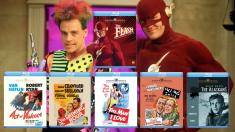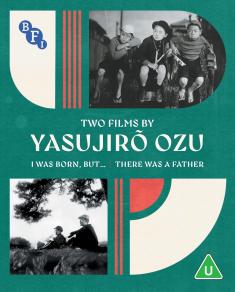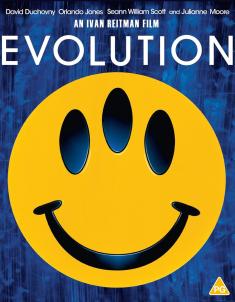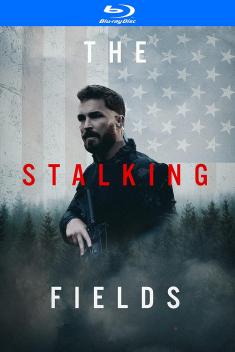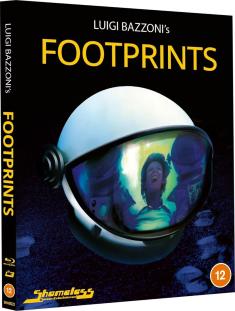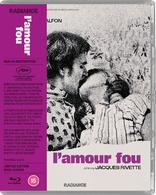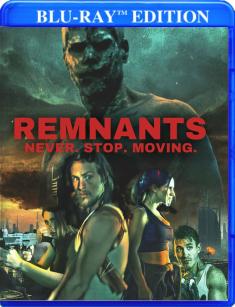I Could Go on Singing
Overview -Storyline: Our Reviewer's Take

"You know, there's an old saying... When you go on stage, you don't feel any pain at all. When the lights hit you, you don't feel anything. It's a stinking lie."
Most of us know Judy Garland exclusively as a film star whose impressive body of work includes such classic gems as 'The Wizard of Oz,' 'Meet Me in St. Louis,' 'Easter Parade,' and 'A Star Is Born,' for which she received a well-deserved Best Actress Academy Award nomination. Yet for Garland, movies would simply be the opening act of a legendary career that would span multiple mediums in the entertainment industry. After 30 films in 15 years, an overworked and exhausted Garland left MGM in 1950 at the ripe old age of 28 to blaze a new trail on the concert stage. And it would be there, nestled in the bosom of adoring audiences who championed her talent, warmth, and authenticity, that she would feel most at home. At her peak in the early 1960s, Garland was dubbed the "World's Greatest Entertainer," and she more than lived up to the moniker, especially on the night of April 23, 1961 at New York City's famed Carnegie Hall when she gave what is widely considered to be one of the greatest performances in show business history. (If you don't believe me, buy the Grammy Award-winning album, 'Judy at Carnegie Hall.' It will change your life.)
That concert once again catapulted Garland - known for her numerous "comebacks" - to the pinnacle of her trade, and sparked renewed interest from film producers, who for years had been leery of Garland due to her erratic behavior, mood swings, and serial unreliability. A small role in Stanley Kramer's 'Judgment at Nuremberg' earned her another Oscar nomination, and after filming 'A Child Is Waiting' for director John Cassavetes, Garland flew to England to star in Ronald Neame's 'The Lonely Stage' (retitled 'I Could Go on Singing' for American audiences) as Jenny Bowman, a fictional vocalist who eerily resembles Judy Garland. (Okay, she's practically a carbon copy.)
Like Judy, Jenny is an über-talented, temperamental, demanding, vulnerable, and deeply beloved entertainer who gives her all on stage, but is needy, insecure, manipulative, and emotionally fragile in her private life. The two women are so similar, it's often difficult to tell where one ends and the other begins. Add to the mix a handful of riveting concert sequences that showcase Garland's brilliance as a live performer, and you have a film that comes closer to capturing the essence of the real Judy Garland than any movie she ever made.
Jenny Bowman sells out concert halls around the world, but the waves of love that cascade over the footlights can't sustain her when she's off stage. Lonely, unfulfilled, and longing for stability, Jenny reconnects with the one great love of her life, Dr. David Donne (Dirk Bogarde), a reserved, somewhat stuffy ear, nose, and throat specialist, when she arrives in London for an engagement at the Palladium theater. Their passionate affair a dozen or so years before produced a son, Matt (Gregory Phillips), who Jenny relinquished to David so she could pursue her burgeoning career. At the time, Jenny promised never to see Matt again, but now regrets that vow. David at first refuses her request to see Matt, then - against his better judgment - acquiesces. They visit him at his country boarding school, but keep Jenny's true identity a secret. Jenny and Matt, however, grow more attached after David is called out of the country to tend to a patient, and as their bond deepens, tensions between Jenny and David boil over, leading to the accidental disclosure of the truth.
Garland initially termed the story "rubbish," and it's easy to see why. Adapted by screenwriter Mayo Simon from a 1958 'Studio One' TV drama starring Mary Astor, it lacks originality and panache, and strongly resembles several sappy mother-love weepies of the 1930s like 'Stella Dallas' and 'Madame X.' Yet somehow Garland, Bogarde, and Phillips - with able assists from Jack Klugman as Jenny's often exasperated manager and Aline MacMahon as her devoted assistant - draw us into the drama and bring the material to life. But it's the subtext simmering beneath the surface that defines 'I Could Go on Singing' and makes it so fascinating and resonant. Chuck the illegitimate child angle, and most of the time Garland simply plays herself. (And yet how "simple" is it to portray such a complex person riddled with contradictions and plagued by demons?) Lines like "Alone. It's the most awful word, and I know what it means" and "Jenny gives more love than anyone, but she takes more love than anyone can possibly give" are a window into Garland's soul and psyche.
Bogarde, an underrated actor who rarely receives the credit due him, helps bring out Garland's best, and their potent intimacy fuels their scenes, many of which are crackling confrontations that touch tender nerves. Neame, best known (much to his everlasting disappointment) for helming the classic 1972 disaster epic 'The Poseidon Adventure,' also knew how to handle Judy and present her in the finest light. In two key scenes, the first of which takes place in bed and on the telephone, he just turns on his camera and lets her go - no cuts, no interruptions, no frills - wisely realizing Garland doesn't require any accoutrements or packaging to create magic.
The other, far more famous scene utterly encapsulates Garland's character and transforms what could have been a pedestrian film into something substantive, searing, and special. It runs seven minutes, occurs late in the movie, and is also shot in a single, uninterrupted take. Distraught over the possible loss of her son, Jenny goes on a bender right before a concert, sprains her ankle, and lands in the emergency room. David arrives to take her to the theater, and she resists, much like Garland, who routinely had to be coaxed and cajoled into performing during times of emotional strife. The dialogue here, much of it rewritten by Bogarde and Garland, rings so true, it often stings. When David tells Jenny the audience is waiting, she snaps back, "I don't care if they're fasting! You just give them their money back and tell them to come back next fall." When he presses her, she digs in her heels: "To hell with them! I can't be spread so thin, I'm just one person. I don't want to be rolled out like a pastry so everybody can get a nice big bite of me." And later, she sharply muses, "Well I've hung on to every bit of rubbish there is to hang on to in life! And I've thrown all the good bits away! Now can you tell me why I do that?!" Like the dressing room scene in 'A Star Is Born,' this tour de force sequence is raw, heartbreaking, and absolutely riveting, and reminds us once again what an amazing actress Judy Garland is.
Of course, it's common knowledge she's an amazing singer, but the concert sequences in 'I Could Go on Singing' capture the visceral power of her instrument and her incomparable stage presence like no other film. 'Hello, Bluebird' and 'By Myself' are both old songs, but they're given exciting new arrangements by the film's composer (and Garland's musical director), Mort Lindsey. The thrilling final bars of both songs are guaranteed to produce goosebumps. When Garland loads up and unleashes "Mis-ter Bluebird, HELL-o!" it's a joyful explosion, while the stirring "'Cause it's solo, all alone, by myself, from...now...ON!" is a bold expression of defiance and strength in the face of adversity.
Equally impressive and mesmerizing is the quiet 'It Never Was You,' sung to solo piano accompaniment. Though Garland prerecorded the track, it was decided she would instead sing the song live on set in one long take - almost unheard of in film production at that time. Neame, who doesn't get enough credit for capturing the real Judy and mitigating the story's flaws, exquisitely frames the sequence, directing the camera to ever-so-slowly zoom in on her, then fluidly rotate to a stunning silhouette shot as Garland caresses the last notes. It's all so seamless and unobtrusive, and complements Garland's simple, sincere performance so beautifully, it takes your breath away.
It's also exhilarating to watch Jenny/Judy psych herself up as she prepares to take the concert stage early in the film. As the overture plays, she stands in the wings, cheering on the orchestra, absorbing and channeling its energy, before steeling herself, focusing, and then confidently walking onstage to thunderous applause. It's a ritual Garland undoubtedly performed hundreds of times, yet it's marvelous to have it memorialized on screen. There's no one like Judy, and this movie hammers home the point again and again.
'I Could Go on Singing' would prove to be Garland's final film. (She would die six years later at age 47.) It's far from her best motion picture, but it's a fitting farewell. Even the title is somewhat prescient. Yes, it's the name of one of the film's songs - written by Harold Arlen and E.Y. Harburg, who, in a bit of full-circle irony, also penned Garland's iconic signature song, 'Over the Rainbow' - but it also reflects Garland's enduring legacy. Judy may be gone, but she has indeed gone on singing - in movies, recordings, and video clips of live performances - ever since. As long as there are speakers, headphones, and earbuds, she will never be silenced. And as long as there's film, she will never be forgotten.
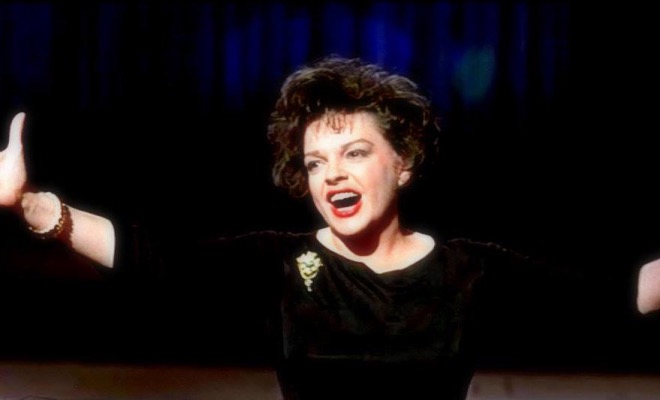
The Blu-ray: Vital Disc Stats
'I Could Go on Singing' arrives on Blu-ray in a limited to 3,000 edition packaged in a standard case. An eight-page booklet featuring an insightful essay by film historian Julie Kirgo, scene shots and publicity stills, and a reproduction of the movie's original poster art is tucked inside the front cover. Video codec is 1080p/AVC MPEG-4 and audio is DTS-HD Master Audio 1.0. Once the disc is inserted into the player, the static menu without music immediately pops up; no previews or promos precede it.
Video Review

It's always great to see the larger-than-life Judy Garland in high definition, and this transfer from Twilight Time definitely outclasses any previous home video version of 'I Could Go on Singing.' Though some isolated print damage unfortunately remains - especially during Garland's critical phone call scene late in the picture - most of the nicks and specks are quite minor and don't detract from the story or performances. Vibrant color, terrific detail, and superior contrast lend the image a vitality and immediacy that heighten the impact of both intimate scenes and Garland's concert sequences. Reds are especially bold and lush, but various shades of blue, green, and yellow blend nicely into the palette. London and the English countryside also play significant roles in the film, and for the first time these exteriors truly come alive, adding a sense of wonder and discovery to the viewing experience. Grain is largely absent, yet the movie retains a lovely film-like feel, and inky, rich black levels enhance the picture's sumptuous nature. Patterns are rock solid, costume textures are well defined, and background elements are easy to discern. The razor sharp close-ups don't always favor Garland from a glamor standpoint, but they show off her natural beauty quite well and heighten the impact of her intense emotional scenes. No banding, crush, or noise could be detected, and any digital doctoring escapes notice. Though a little more clean-up would have lofted this transfer into five-star territory, Garland fans should be quite pleased with this high-quality rendering of an underrated film.
Audio Review

Garland's soaring vocals deserve superior audio treatment, and thankfully that's just what they get with this DTS-HD Master Audio 1.0 track. Whether she sings with solo piano accompaniment or a 30-piece orchestra, Garland's vocals are well prioritized, full-bodied, and nuanced. Though it only emanates from the center channel, the sound fills the room with ease, with only a faint bit of occasional hiss clouding the mix. A wide dynamic scale manages all the highs and lows of composer Mort Lindsey's first-class arrangements and scoring without a hint of distortion, and sonic accents such as footsteps crunching against the pavement, finger snaps during Garland's songs, and the helicopter blade during the London flyover sequence are all distinctly rendered. Dialogue is easy to comprehend, even when spoken softly, and Garland's excellent diction makes the song lyrics clear as a bell as well. The sound is so good, some off-camera rustling and noise can be heard during Garland's quiet, one-take, live rendition of 'It Never Was You,' as the camera tracks toward and around her. Though it's a bit disruptive, It's a small price to pay for such unqualified magic.
For a real treat, listen to all of Garland's songs using the included isolated score track, presented in DTS-HD Master Audio 2.0 stereo. It's an unforgettable experience. (For a more complete review of that track, see the supplements section below.)
Special Features

Other than a trailer, the previous DVD edition of 'I Could Go on Singing' included no supplements whatsoever, so it's a treat to have a few extras included on this Blu-ray release.
-
Audio Commentaries - Two commentaries provide different perspectives on this film. The first features producer Lawrence Turman and film historians Lem Dobbs and Nick Redman. At 89, Turman is still sharp as a tack and recalls many details concerning the film's production. He talks about the "trepidation" everyone felt prior to shooting, due to Garland's spotty track record regarding punctuality and reliability, and discusses the intimate connection between Garland's screen character and her own persona. Though Turman recognizes the star's emotional instability (and cites several examples), he remembers her as "sharp," "savvy," and "fun." "She was magical on screen, magical in person, but troubled," Turman says. He also reveals Bogarde was not the first, second, or third choice for the male lead, lists the reasons why the movie was shot in England instead of America, praises Neame's direction, and remarks on Garland's weight fluctuations during filming. In addition, he minces no words about the exploitation of Garland by her managers and estranged husband at the time, and notes how the Garland-Bogarde off-screen friendship deteriorated under the strain of production. Unfortunately, about halfway through the commentary the discussion veers away from 'I Could Go on Singing' and concentrates on Turman's other projects, but when it's on point, this track is lively, informative, and filled with interesting anecdotes. The second commentary, featuring film historians David Del Valle and Steven Peros, is equally absorbing, despite some factual errors. The two enjoy a good rapport and remain largely focused on Garland, Bogarde, and Neame. They call 'I Could Go on Singing' a "concealed documentary" of Garland's life, credit Bogarde for "taking on" Judy, and provide essential background on the lives and careers of both Bogarde and Neame. (Strangely, they don't delve much into Garland's professional and personal history, perhaps because they believe it's widely known.) Both men praise the acting ability of Garland and Bogarde, analyze Garland's performing style, and seem sympathetic to Garland's personal issues. They also talk about why they believe the film wasn't successful and share some gossipy anecdotes. Fans of the film will enjoy both discussions, but if you're new to Garland, check out the work of esteemed Garland biographer John Fricke, who provides a fair, balanced, and accurate assessment of this legendary performer's life and career. Fricke has recorded commentaries for several Garland DVDs, and it's a shame he doesn't participate here.
-
Isolated Score Track - One of the unsung aspects of 'I Could Go on Singing' is Mort Lindsey's excellent score, which deftly employs instrumental variations of Garland's musical numbers. Lindsey was Garland's music director for several years (he conducted the orchestra at her legendary Carnegie Hall concert and can be seen in this film conducting Jenny Bowman's overture prior to the 'Hello, Bluebird' sequence) and was a masterful arranger. This isolated score track, presented in DTS-HD Master Audio 2.0, showcases his superior handiwork, and includes Garland's vocals, which exude even more power and richness in stereo. Everyone who enjoys this film owes it to themselves to switch on this track and revisit all of Garland's songs. The sheer visceral force of her performance will literally knock your socks off and send chills racing up and down your spine. I usually don't care much about isolated audio tracks, but this will be my go-to track when I crave a Garland fix.
-
Theatrical Trailers (HD, 7 minutes) - Two previews are included, and they share few similarities. The first hypes Garland's return to film musicals after an eight-year hiatus, and promises audiences "the real Judy." The second seems to be a British trailer and doesn't reference the film's title. (It was called 'The Lonely Stage' in England.) It also focuses a bit more on Dirk Bogarde and includes the line in which he calls Garland's character a "bitch" - something the American censors probably would not have allowed in a preview at that time.
-
TV Spot (HD, 1 minute) - This brief teaser is all about Judy, heralding her voice, dramatic skills, and magnetism.
Final Thoughts

'I Could Go on Singing' may not be Judy Garland's best film, but it's arguably her most personal, and it features one of her finest dramatic performances. Though the story of a temperamental vocalist who tracks down her long-lost love and tries to reclaim the son she abandoned years before is often trite and predictable, Garland is anything but. In a portrayal bursting with raw emotional intensity, she shines, and in four powerful concert performances, she dazzles...and reminds us why she was often called the World's Greatest Entertainer. Twilight Time's Blu-ray presentation features strong video and audio transfers and a few interesting supplements, including a killer isolated score track that further enhances Garland's magic.
Garland only lived 47 years, and it's now been 47 years since she's been gone, and yet her impact and magnetism haven't waned. 'I Could Go on Singing' celebrates her limitless talent and provides a glimpse of the woman behind it. The story may be dated, but Garland is timeless, and for that reason this limited edition disc comes highly recommended.
